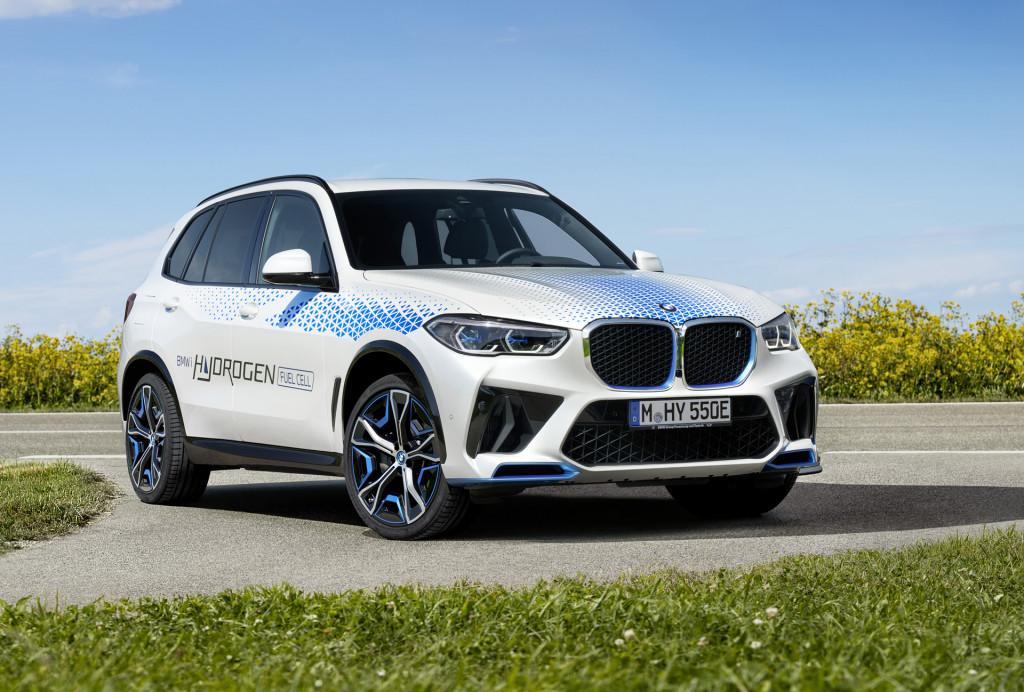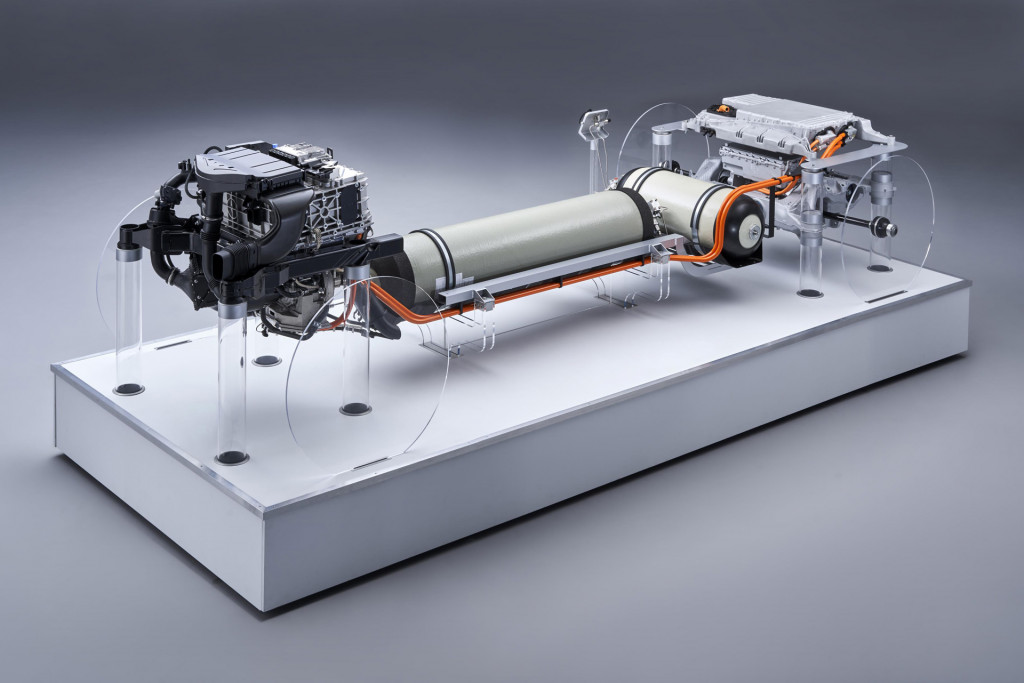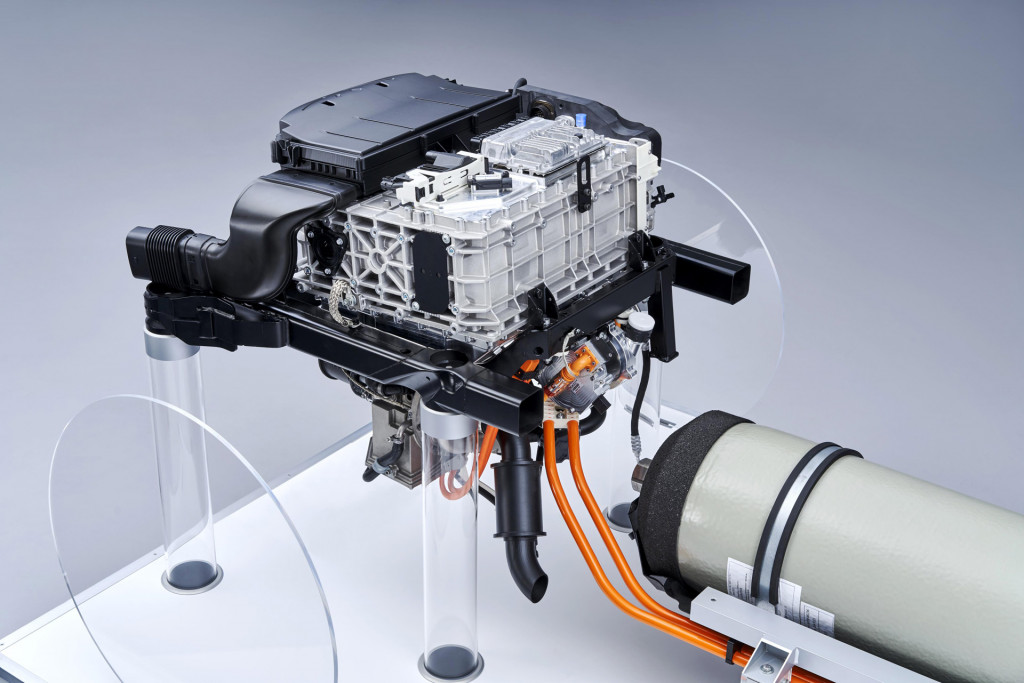BMW begins production of fuel cells for electric-hydrogen X5

On Wednesday, BMW began production of hydrogen fuel cells, which will eventually be used in the powertrains of a limited number of electric BMW X5 SUVs. The SUVs will be used for testing and demonstration purposes, and will not be sold.
A hydrogen electric vehicle is essentially an EV that uses a hydrogen fuel cell to power an electric motor instead of a battery. Fuel cells combine hydrogen with oxygen from the air in a virtually zero-emissions process to generate electricity, either directly or through an intermediate battery.
In the case of BMW’s hydrogen-electric X5, which will enter production later this year as the BMW iX5 Hydrogen, the fuel cell is located at the front and draws hydrogen from two tanks, one in the transmission tunnel and one under the rear seats. The generated electricity is used to power the electric motor on the rear axle.
Electricity from the fuel cell also charges a small battery that helps power the engine in high load situations. The total system power in this case is 368 hp. The fuel cell alone produces a continuous capacity of 167 horsepower.

BMW’s Hydrogen iX5 Prototype

BMW . hydrogen electric powertrain

BMW . hydrogen electric powertrain
BMW has no plans to sell the iX5 Hydrogen to private customers. The automaker doesn’t expect to have any hydrogen-electric vehicles at its dealerships until 2025, at the earliest. BMW said the date could be later depending on the direction of the market.
Despite the start of hydrogen fuel cell production, BMW remains committed to battery-powered electric vehicles as the main path to achieving carbon-free operations. BMW is developing the iX5 Hydrogen so it can be ready to offer customers the powertrain of their choice in the future, whether it’s petrol, diesel, battery electric or hydrogen-electric. In the case of hydrogen, BMW sees this as an opportunity for customers who prefer long-distance driving.
Oliver Zipse, CEO of the BMW Group, said: “We think hydrogen-powered vehicles are ideally placed to match battery-powered vehicles and complete the electric mobility picture. “. “By starting small-scale fuel cell production today, we are demonstrating the technical maturity of this type of powertrain and underscoring its potential for the future.”
BMW isn’t the only established automaker to see hydrogen as a future fuel source. Toyota has provided a Second generation Mirai Hydrogen vehicles in countries where hydrogen is actually available, while the likes of Hyundai Motor Group, Daimler Trucks and Volvo Trucks are looking for fuel for zero-emissions long-distance transport.




